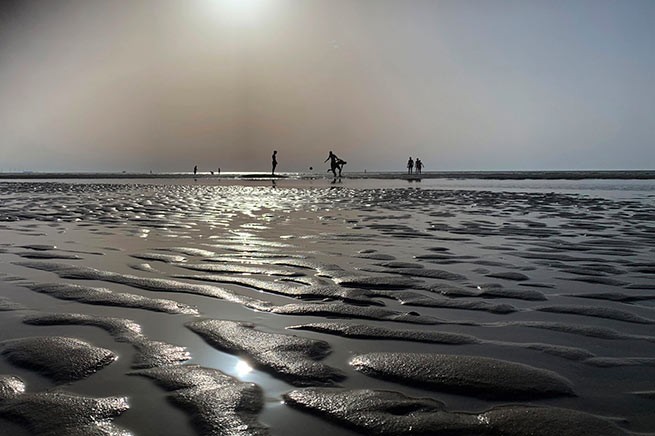On Monday, the surface water temperature of the Mediterranean Sea reached its highest level on record, as reported by Spanish researchers, and then confirmed by the marine program Copernicus.
“We have recorded a new record for the average daily surface temperature of the Mediterranean Sea: 28.71 ° C,” the Spanish Institute of Marine Sciences said in a statement. “The previous maximum was recorded on August 23, 2003 with an average temperature of 28.25°C,” the scientists added. In local areas, the temperature exceeded 30°C (4 degrees above the norm for this season) in the water area between Sicily and Naples.
It’s now official 🚨
Yesterday's average Sea Surface Temperature for the Mediterranean Sea reached 28.40°C, the highest in recorded history! This beats the previous record of 28.25ºC set during the European heatwave of August 2003. pic.twitter.com/Cpvol0DIA1
— Nahel Belgherze (@WxNB_) July 25, 2023
These findings were also confirmed by the European Union’s Copernicus Marine Life Observation Program.
Climate change hotspot in the Mediterranean
The news comes just days after the United Nations Intergovernmental Panel on Climate Change (IPCC/GIEC) released a list of the most serious threats to the Mediterranean region.
Killer heat waves
Like parts of the US and Asia, the Mediterranean has been hit by extreme heat in recent weeks. Temperatures in Sicily and Sardinia could exceed the European record of 48.8°C.
The IPCC report, Climate Change Impacts and Adaptation, published in 2022, states that “heat waves are intensifying as a result of climate change in the Mediterranean and intensifying in cities due to urbanization policies,” causing illness and death.
According to a study conducted in 2010 by the University of Bern, the intensity, duration and number of heat waves in the eastern Mediterranean have increased 6-7 times compared to the 1960s.
Threat to cereals and olives
Researchers from Stanford University drew attention to the fact that “most Mediterranean cultures are already experiencing significant negative effects of climate change.” Already this year, farmers in North Africa are bracing for fodder, grain and vegetable crop failures due to drought.
Water and politics
The report of the intergovernmental panel of experts warns that climate change will exacerbate water shortages in most areas of the Mediterranean. It predicts a decrease in water supplies in lakes and reservoirs by 45% within a century, up to 55% in North Africa. At the same time, “terrestrial and freshwater ecosystems in the Mediterranean are being impacted by climate change, resulting in loss of habitat and biodiversity.”
According to the European Drought Observatory, groundwater levels in half of the Mediterranean were already low in June. On a political level, the drought in Spain has sparked tensions ahead of the July 23 elections.
sea level rise
Sea levels in the Mediterranean region have risen by 2.8 mm per year over the past decades, threatening coastal areas and cities such as Venice, which are increasingly affected by flooding.
“Sea level rise is already impacting coastal waters around the Mediterranean perimeter and is expected to increase the risk of flooding, soil erosion and coastal salinization,” warns the IPCC. “These events could affect agriculture, fisheries and aquaculture, urban development, port operations, tourism, archaeological sites and numerous coastal ecosystems.”
Invasive alien species
Climate change threatens not only the beaches, the tourist gems of the Mediterranean. All aquatic ecosystems, as well as the food supply ecosystems that depend on them, may be affected.
“Since the 1980s, the ecosystems of the Mediterranean have been undergoing drastic changes, with biodiversity loss and the introduction of invasive alien species. These include the tropical rabbitfish that feed on algae and sea grasses on the Mediterranean floor, depriving other marine species of valuable resources.
Under a global warming scenario of more than +1.5°C above pre-industrial levels, more than 20% of fish and shellfish could disappear from the eastern Mediterranean by 2060, and by 2050 fishing revenues could fall by 30%, scientists warn.
AP sources – MPE, AFP.







More Stories
Black swan in the Evros river delta
The weather will turn bad on Good Friday
Crete "shaking" – two earthquakes this morning